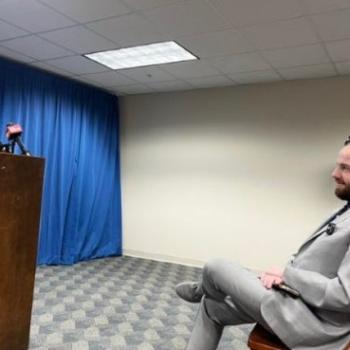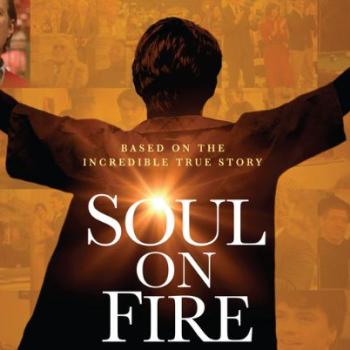Last summer my wife, Jeanie, and I were sitting in the choir stall at the American Cathedral in Paris for the 9 a.m. service. The dean of the cathedral, the Very Reverend Lucinda Laird, stepped into our midst to preach, and she began her sermon by asking some hard questions. She had just lived through a very trying week: One of her dearest friends had died without warning, and on top of that, a lovely and loving couple she had married early in her life as a priest had just announced that they were getting a divorce. I imagine that it must have felt like a wave of unexpected heartbreak washing over her and threatening to knock her off her feet. Certainly it was apparent that the deaths of her friend and of her friends' marriage had strongly affected her.
What are we supposed to do, Dean Laird asked us, with such bad news, with the tragedies life throws at us all too often? What do scripture, faith, and our tradition have to say to us — if anything — about life's hard questions?
As we listened, Dean Laird began to wrestle with those questions in front of our very eyes, began to peel back the layers of pain and suffering to get at some answers. She did this by thinking through the scriptures assigned in the day's lectionary readings. She did it by consulting her own considerable intelligence as she walked us through some provisional answers about how and what suffering is for those who love God.
By the time she was finished, we all had reached some answers — provisional ones, perhaps, but certainly situated on solid footing — and gained some peace that God was present in all that transpires, and that God's love will never fail us.
What Lucinda Laird was doing in her sermon at the American Cathedral was a way of doing theology that is distinctive to Anglicans and Episcopalians: taking scripture, reason, and the tradition seriously, and using each to balance the other.
Unlike Catholics, we don't give the Church and its authorities the last word. Unlike Protestants, we don't privilege individual readings of scripture, however guided by the Holy Spirit, as the sole truth.
Richard Hooker was an early proponent of a sort of three-pronged approach to revelation. (He is often mistakenly said to have described the process of weighing scripture, reason, and the Church's teaching as a "three-legged" stool, in which each of the three legs is necessary and none can be "longer" than the other lest the stool topple over.) The three-legged stool is an example of the Anglican middle way. The beauty of the concept, of course, is that these three things in concert allow us to enter into the long, ongoing conversation of theology without overemphasizing one mode of understanding over another.
It is Anglican balance at work.
Some Christian traditions privilege scripture over any other means of knowing God. For them, the scriptures are God-breathed, and every word, verse, and chapter are to be interpreted as simply and literally as possible, even if these interpretations tend to come at the expense of the larger story of the Bible. It is possible to read the Bible as monolithic, infallible, and inerrant — although you then are forced to try to justify every contradiction and accept every verse as equally authoritative. This becomes a house of cards that collapses in a heap if you pull out any one of them, and represents a way of reading the Bible that doesn't consider it as a cultural document, nor as a collection of texts in conversation with each other. Why do the gospels differ in some essentials? Why (to choose one variance) is Jesus' ministry variously said to be one year long and three years long?
Episcopal scholars like the late Marcus Borg advocate taking the Bible seriously, but reading it better. To read it as a recipe book or an owner's manual in which every section is as important as every other section doesn't seem possible to many of us in the twenty-first century. How can Bible verses justifying slavery, condemning homosexuality, or limiting the roles of women in the Church be authoritative in a world that has largely moved beyond those notions?
For that matter, how can we keep from collapsing in helpless laughter, as Archbishop of Canterbury Justin Welby did when asked to read from the lectern the Old Testament proscriptions against eating shellfish, vultures, camels, and rock badgers?
- T. Wright wrote Simply Christian to justify the sort of thoughtful and engaged Christianity we seek in the Episcopal Church. He certainly thinks the Bible is important; after all, Wright is perhaps the world's leading scholar of the New (or Christian) Testament. But in his book, he comes to the Bible only in chapter thirteen — after chapters on justice, beauty, God, the people of God, and Jesus. Wright advocates a serious study of the Bible, but reason and the traditions of the Church have to be used as filters to reading it: "Squabbling over particular definitions of the qualities of the Bible is like a married couple squabbling over who love the children more, when they should be getting on with bringing them up and setting them a good example. The Bible is there to enable God's people to be equipped to do God's work in God's world, not to give them an excuse to sit back smugly, knowing they possess all God's truth." (157)





